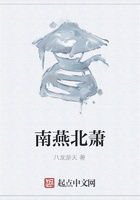After the scene in the Fertilizing Room, all upper-caste London was wild to see this delicious creature who had fallen on his knees before the Director of Hatcheries and Conditioning–or rather the ex-Director, for the poor man had resigned immediately afterwards and never set foot inside the Centre again–had flopped down and called him (the joke was almost too good to be true!) “my father.” Linda, on the contrary, cut no ice; nobody had the smallest desire to see Linda. To say one was a mother–that was past a joke: it was an obscenity. Moreover, she wasn’t a real savage, had been hatched out of a bottle and conditioned like any one else: so coudn’t have really quaint ideas. Finally–and this was by far the strongest reason for people’s not wanting to see poor Linda–there was her appearance. Fat; having lost her youth; with bad teeth, and a blotched complexion, and that figure (Ford!)–you simply couldn’t look at her without feeling sick, yes, positively sick. So the best people were quite determined not to see Linda. And Linda, for her part, had no desire to see them. The return to civilization was for her the return to soma, was the possibility of lying in bed and taking holiday after holiday, without ever having to come back to a headache or a fit of vomiting, without ever being made to feel as you always felt after peyotl, as though you’d done something so shamefully anti-social that you could never hold up your head again. Soma played none of these unpleasant tricks. The holiday it gave was perfect and, if the morning after was disagreeable, it was so, not intrinsically, but only by comparison with the joys of the holiday. The remedy was to make the holiday continuous. Greedily she clamoured for ever larger, ever more frequent doses. Dr. Shaw at first demurred; then let her have what she wanted. She took as much as twenty grammes a day.
“Which will finish her off in a month or two,” the doctor confided to Bernard. “One day the respiratory centre will be paralyzed. No more breathing. Finished. And a good thing too. If we could rejuvenate, of course it would be different. But we can’t.”
Surprisingly, as every one thought (for on soma-holiday Linda was most conveniently out of the way), John raised objections.
“But aren’t you shortening her life by giving her so much?”
“In one sense, yes,” Dr. Shaw admitted. “But in another we’re actually lengthening it.” The young man stared, uncomprehending. “Soma may make you lose a few years in time,” the doctor went on. “But think of the enornous, immeasurable durations it can give you out of time. Every soma-holiday is a bit of what our ancestors used to call eternity.”
John began to understand. “Eternity was in our lips and eyes,” he murmured.
“Eh?”
“Nothing.”
“Of course,” Dr. Shaw went on, “you can’t allow people to go popping off into eternity if they’ve got any serious work to do. But as she hasn’t got any serious work…”
“All the same,” John persisted, “I don’t believe it’s right.”
The doctor shrugged his shoulders. “Well, of course, if you prefer to have her screaming mad all the time…”
In the end John was forced to give in. Linda got her soma. Thenceforward she remained in her little room on the thirty-seventh floor of Bernard’s apartment house, in bed, with the radio and television always on, and the patchouli tap just dripping, and the soma tablets within reach of her hand–there she remained; and yet wasn’t there at all, was all the time away, infinitely far away, on holiday; on holiday in some other world, where the music of the radio was a labyrinth of sonorous colours, a sliding, palpitating labyrinth, that led (by what beautifully inevitable windings) to a bright centre of absolute conviction; where the dancing images of the television box were the performers in some indescribably delicious all-singing feely; where the dripping patchouli was more than scent–was the sun, was a million saxophones, was Popé making love, only much more so, incomparably more, and without end.
“No, we can’t rejuvenate. But I’m very glad,” Dr. Shaw had concluded, “to have had this opportunity to see an example of senility in a human being. Thank you so much for calling me in.” He shook Bernard warmly by the hand.
It was John, then, they were all after. And as it was only through Bernard, his accredited guardian, that John could be seen, Bernard now found himself, for the first time in his life, treated not merely normally, but as a person of outstanding importance. There was no more talk of the alcohol in his blood-surrogate, no gibes at his personal appearance. Henry Foster went out of his way to be friendly; Benito Hoover made him a present of six packets of sex-hormone chewing-gum; the Assistant Predestinator came out and cadged almost abjectly for an invitation to one of Bernard’s evening parties. As for the women, Bernard had only to hint at the possibility of an invitation, and he could have whichever of them he liked.
“Bernard’s asked me to meet the Savage next Wednesday,” Fanny announced triumphantly.
“I’m so glad,” said Lenina. “And now you must admit that you were wrong about Bernard. Don’t you think he’s really rather sweet?”
Fanny nodded. “And I must say,” she said, “I was quite agreeably surprised.”
The Chief Bottler, the Director of Predestination, three Deputy Assistant Fertilizer-Generals, the Professor of Feelies in the College of Emotional Engineering, the Dean of the Westminster Community Singery, the Supervisor of Bokanovskification–the list of Bernard’s notabilities was interminable.
“And I had six girls last week,” he confided to Helmholtz Watson. “One on Monday, two on Tuesday, two more on Friday, and one on Saturday. And if I’d had the time or the inclination, there were at least a dozen more who were only too anxious…”
Helmholtz listened to his boastings in a silence so gloomily disapproving that Bernard was offended.
“You’re envious,” he said.
Helmholtz shook his head. “I’m rather sad, that’s all,” he answered.
Bernard went off in a huff. Never, he told himself, never would he speak to Helmholtz again.














